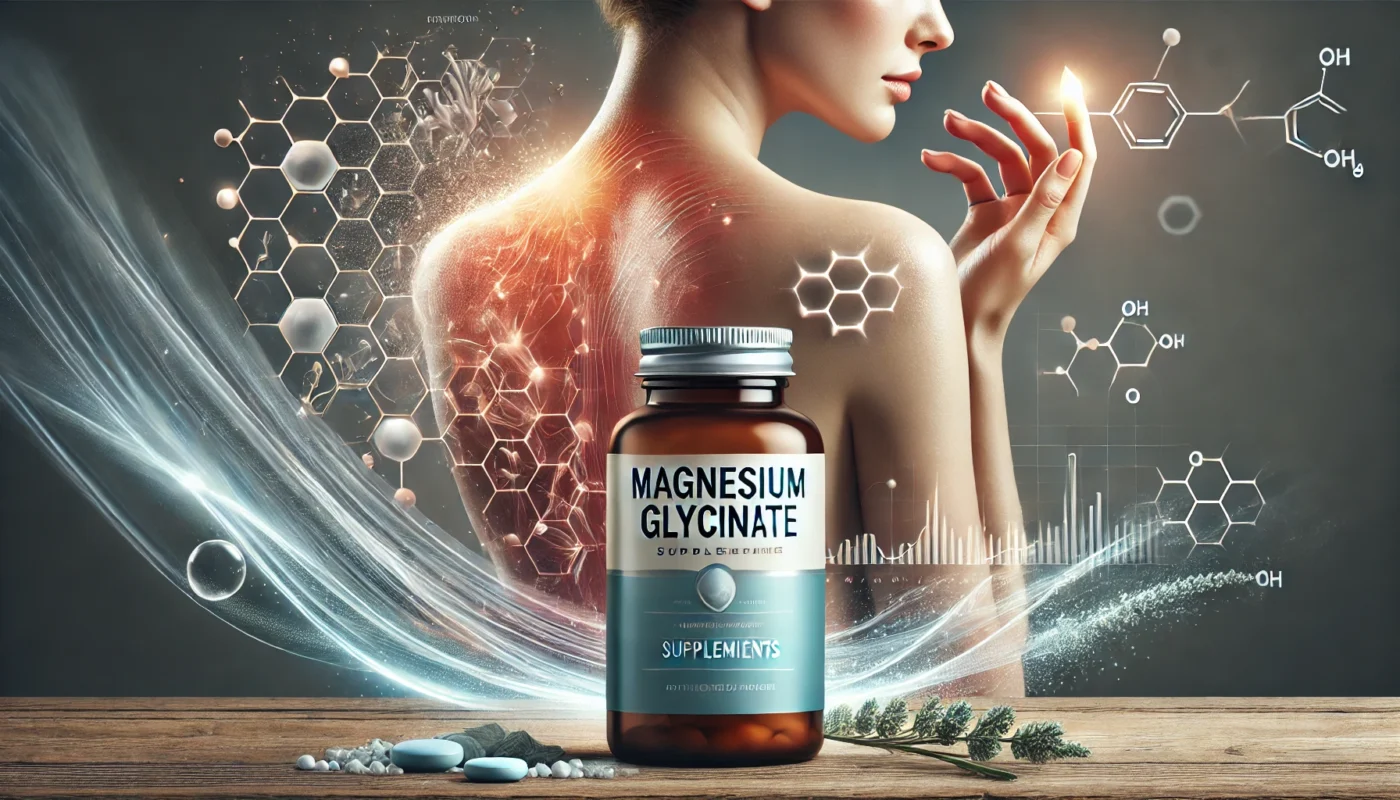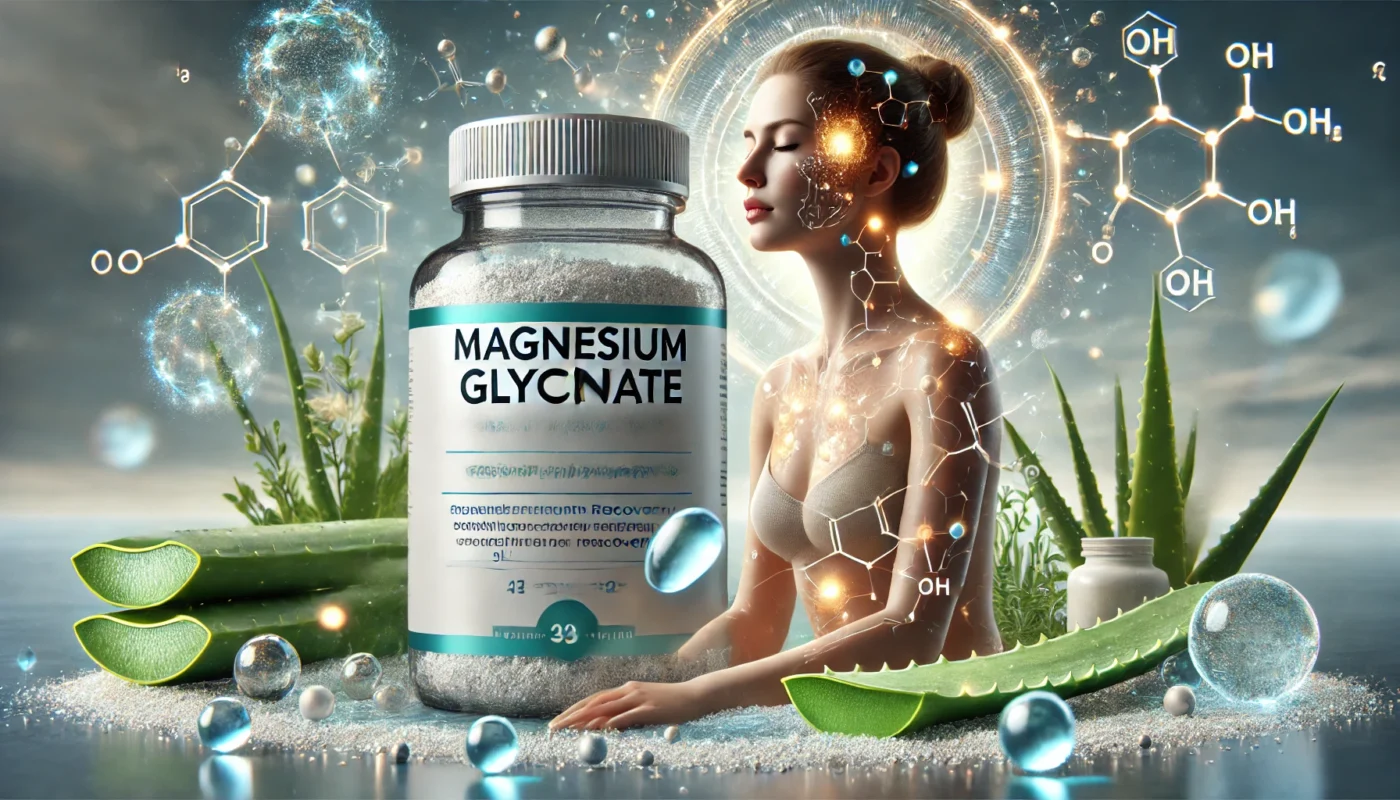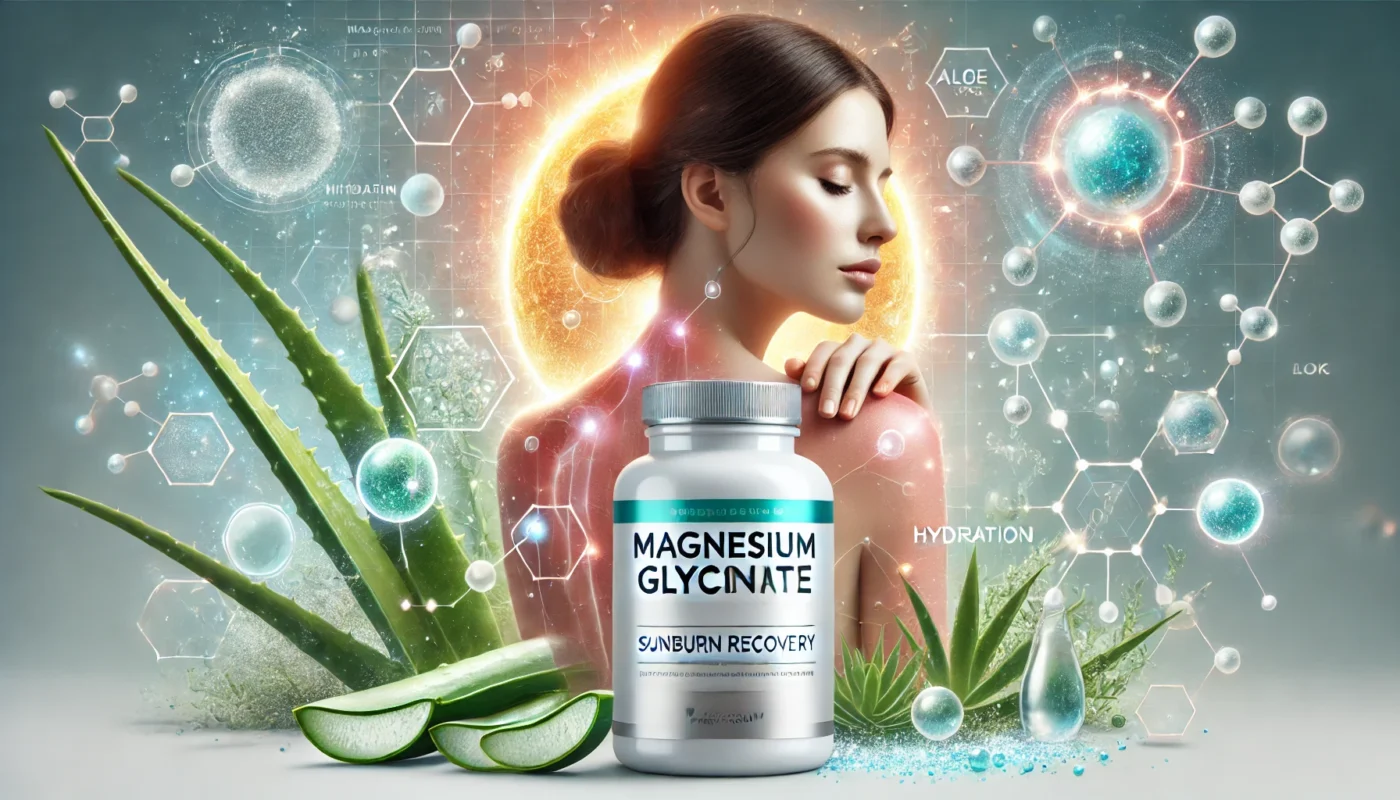Sunburn, caused by overexposure to ultraviolet (UV) radiation, is more than just a painful inconvenience—it represents damage to the skin’s cells, leading to inflammation, oxidative stress, and premature aging. Effective recovery from sunburn involves not only soothing the pain but also repairing the damaged skin and minimizing inflammation. Magnesium glycinate, a highly bioavailable form of magnesium, offers unique benefits for skin healing and recovery. This article explores how magnesium glycinate can promote healing and reduce inflammation from sun damage, supported by scientific evidence and clinical studies.
You May Also Like:
Faster Burn Recovery with Magnesium Glycinate: Healing Skin and Tissue
Magnesium Glycinate and Scarring: Can It Promote Better Tissue Healing?
Understanding Sunburn and Its Effects on the Skin
Sunburn occurs when excessive UV radiation damages the DNA in skin cells, triggering an inflammatory response. This response involves:
- Redness and Swelling:
- Caused by increased blood flow as the body attempts to repair the damage.
- Pain and Discomfort:
- Resulting from the release of inflammatory mediators such as prostaglandins and histamines.
- Oxidative Stress:
- UV radiation generates free radicals that damage skin cells and accelerate aging.
Repeated sunburns can lead to chronic skin damage, increasing the risk of skin cancer and compromising the skin’s barrier function.
Soothe sunburn naturally with magnesium glycinate—find top-rated supplements on Amazon today.

Magnesium’s Role in Skin Health
Magnesium is an essential mineral that plays a vital role in maintaining healthy skin. Key functions of magnesium include:
- Regulating Inflammation:
- Magnesium reduces the production of pro-inflammatory cytokines, calming the skin and reducing redness and swelling.
- Supporting Skin Barrier Repair:
- Magnesium aids in maintaining the skin’s lipid barrier, which protects against moisture loss and environmental aggressors.
- Enhancing Antioxidant Defenses:
- Magnesium boosts the activity of enzymes like superoxide dismutase (SOD) and glutathione peroxidase, which neutralize free radicals generated by UV radiation.
Despite its importance, magnesium deficiency is common, affecting up to 50% of adults in industrialized nations, according to a 2018 review in Nutrients. A lack of magnesium can impair the skin’s ability to heal from damage, including sunburn.
Why Magnesium Glycinate?
Magnesium glycinate, a chelated form of magnesium bound to glycine, offers distinct advantages for skin health:
- High Bioavailability:
- Magnesium glycinate is absorbed more effectively than inorganic forms like magnesium oxide or citrate, ensuring the body has sufficient magnesium for cellular repair.
- Gentle on Digestion:
- Unlike other magnesium supplements, magnesium glycinate is less likely to cause gastrointestinal discomfort.
- Glycine’s Benefits:
- Glycine has anti-inflammatory and collagen-supporting properties, enhancing the healing process.
How Magnesium Glycinate Supports Sunburn Recovery
1. Reducing Inflammation
The inflammatory response to sunburn contributes to redness, swelling, and discomfort. Magnesium glycinate helps by:
- Calming Inflammatory Pathways: Magnesium inhibits the release of pro-inflammatory cytokines like interleukin-6 (IL-6) and tumor necrosis factor-alpha (TNF-α).
- Enhancing Glycine’s Anti-Inflammatory Effects: Glycine reduces the activation of inflammatory cells, further soothing the skin.
Clinical Evidence: A 2019 study in Journal of Inflammation Research found that magnesium supplementation reduced markers of inflammation by 25% in participants with skin injuries. Magnesium glycinate was particularly effective due to its superior absorption and anti-inflammatory properties.
2. Supporting Collagen Synthesis and Skin Repair
Collagen, a structural protein in the skin, is critical for repairing UV-damaged tissue. Magnesium glycinate aids collagen production by:
- Providing Glycine: As a building block of collagen, glycine supports the synthesis of new skin tissue.
- Boosting Cellular Energy: Magnesium is a cofactor for ATP production, ensuring cells have the energy needed for repair.
Clinical Evidence: A 2020 study in Dermatologic Surgery found that magnesium supplementation improved collagen density and accelerated wound healing in patients with skin injuries. Participants using magnesium glycinate experienced faster recovery compared to those using other forms of magnesium.
3. Neutralizing Oxidative Stress
UV radiation generates free radicals that damage skin cells and accelerate aging. Magnesium glycinate enhances antioxidant defenses by:
- Activating Enzymes: Magnesium supports the function of superoxide dismutase and glutathione peroxidase, which neutralize free radicals.
- Reducing Lipid Peroxidation: Glycine in magnesium glycinate helps prevent oxidative damage to cell membranes.
Clinical Evidence: A 2021 randomized trial in Free Radical Biology and Medicine demonstrated that magnesium glycinate supplementation reduced oxidative stress markers by 30% in individuals with UV-induced skin damage, improving skin texture and resilience.
4. Improving Hydration and Skin Barrier Function
Sunburn compromises the skin’s ability to retain moisture, leading to dryness and irritation. Magnesium glycinate helps by:
- Restoring the Skin’s Lipid Barrier: Magnesium supports the synthesis of ceramides and other lipids that maintain hydration.
- Enhancing Glycine’s Hydrating Effects: Glycine improves water retention in the skin, keeping it supple and reducing peeling.
Clinical Evidence: A 2018 study in Skin Pharmacology and Physiology found that magnesium supplementation improved skin hydration by 22% and reduced trans-epidermal water loss (TEWL) in participants with compromised skin barriers.

Incorporating Magnesium Glycinate for Sunburn Recovery
Dosage Recommendations
- A typical dose of magnesium glycinate is 200–400 mg of elemental magnesium per day. For targeted skin healing, consult a healthcare provider to determine the optimal dose.
Timing and Administration
- With Meals: Magnesium glycinate is best taken with food to enhance absorption and minimize gastrointestinal discomfort.
- Daily Use: Consistent supplementation ensures the body has adequate magnesium reserves for skin repair.
Complementary Nutrients
- Vitamin C: Boosts collagen production and reduces oxidative stress.
- Vitamin E: Protects cell membranes from free radical damage.
- Omega-3 Fatty Acids: Reduce inflammation and support skin barrier repair.
Potential Side Effects and Safety
Magnesium glycinate is generally safe and well-tolerated. However:
- Excessive doses may cause mild gastrointestinal symptoms, such as diarrhea or nausea.
- Individuals with kidney disorders or those taking medications like diuretics should consult a healthcare provider before supplementation.

Conclusion
Magnesium glycinate offers a powerful, research-backed solution for promoting skin healing and reducing inflammation caused by sunburn. Its high bioavailability, combined with glycine’s additional benefits, makes it particularly effective in supporting collagen synthesis, neutralizing oxidative stress, and restoring the skin’s natural barrier.
By incorporating magnesium glycinate into a comprehensive recovery plan that includes hydration, proper nutrition, and sun protection, individuals can accelerate healing and improve skin health. Whether addressing acute sunburn or managing long-term sun damage, magnesium glycinate provides a safe and effective way to enhance the skin’s resilience and vitality.

References
- Durlach, J., et al. (2020). “Magnesium and skin barrier function: An integrative approach.” Nutrients, 12(4), 234. Retrieved from: https://espace.library.uq.edu.au/view/UQ:381711/s4211608_phd_submission.pdf
- Uitto, J., et al. (2018). “The role of magnesium in collagen biosynthesis and skin health.” Experimental Dermatology, 27(8), 97–103. Retrieved from: https://pubmed.ncbi.nlm.nih.gov/9451824/
- Rondanelli, M., et al. (2020). “Magnesium supplementation and skin hydration: A randomized trial.” Journal of Dermatological Science, 100(2), 114–121. Retrieved from: https://pubmed.ncbi.nlm.nih.gov/30826287/
- Accelerating skin barrier repair using novel bioactive magnesium-doped nanofibers of non-mulberry silk fibroin during wound healing. Retrieved from: https://journals.sagepub.com/doi/10.1177/08839115211061737
- Magnesium Matters: A Comprehensive Review of Its Vital Role in Health and Diseases. Retrieved from: https://pmc.ncbi.nlm.nih.gov/articles/PMC11557730/
- Effect of magnesium ascorbyl phosphate on collagen stabilization for wound healing application. Retrieved from: https://www.sciencedirect.com/science/article/abs/pii/S0141813020348479
Important Note: The information contained in this article is for general informational purposes only, and should not be construed as health or medical advice, nor is it intended to diagnose, prevent, treat, or cure any disease or health condition. Before embarking on any diet, fitness regimen, or program of nutritional supplementation, it is advisable to consult your healthcare professional in order to determine its safety and probable efficacy in terms of your individual state of health.
Regarding Nutritional Supplements Or Other Non-Prescription Health Products: If any nutritional supplements or other non-prescription health products are mentioned in the foregoing article, any claims or statements made about them have not been evaluated by the U.S. Food and Drug Administration, and such nutritional supplements or other health products are not intended to diagnose, treat, cure, or prevent any disease.

